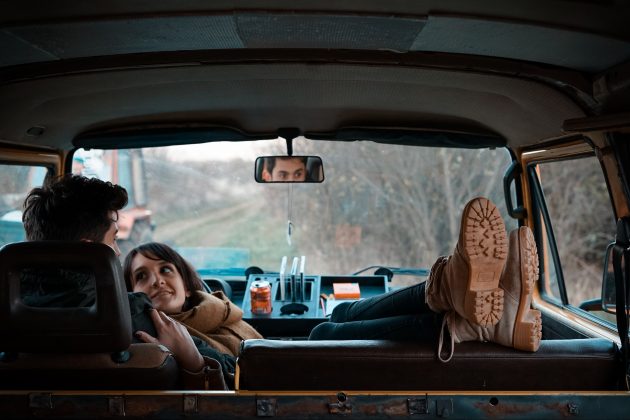July 15, 2020
Road Trip Tips for Couples

Last week, we enjoyed a few days in Niagara on the Lake and the Beamsville Bench and this week we’re heading to Norfolk County and Ottawa. Now that we’re grounded, road trips are becoming the norm. For some, a road trip is far less stressful than flying, but most couples and families find that tension can build in small spaces regardless of whether or not you’re on a plane, train or automobile.
I joined Jeff and Carolyn on Global TV’s The Morning Show today to share my top tips for harmonious road trips. Check out the video and summary below.
Do people actually enjoy road trips or are fights the norm?
We can enjoy the road trip and experience tension.
Tension is the norm when we’re travelling and have very little control over the environment and circumstances. Traffic, road conditions, weather, and other factors beyond our control can create stress and increased cortisol levels which result in a decline in cognitive functioning; it follows that you may be more impatient, less empathetic, and less rational, which can increase the likelihood of snapping at your partner or kids. On average, it takes 22 minutes to start a fight after heading out on the road.
Why do we tend to fight in the car?
Stress is both an emotional and physiological response.
The hypothalamus signals the pituitary gland which signals the adrenal glands to increase the production of cortisol. Cortisol mobilizes glucose and fatty acids from the liver to increase energy — this is the energy we need to deal with a stressful situation, but it also means we sometimes overreact. When we’re driving or even backseat driving, we often put ourselves into a state of hyper vigilance — constantly checking on things like road conditions, traffic around us, big trucks whizzing by and kids in the backseat. This hyper vigilance can be exhausting and cause us to become testy. The smallest things can trigger us when we feel a lack of control and hyper vigilance.
Overexposure can also play a role and this is particularly relevant now that so many of us have been working from home for months. It’s okay to not spend the whole road trip talking — you can listen to a podcast or do your own thing rather than feeling pressure to entertain one another the whole way.
How can we fight less on a road trip?
Attend to your basic needs first: pack food, water, snacks and any paperwork you need, so that you’re not hangry. Thirst and hunger can also affect cognitive functioning and increase the likelihood of conflict.
And consider 7 minutes of exercise before you hop in the car. Movement helps to reduce stress. You might even do ten jump squats at every truck stop.
Recognize what you tend to fight about and plan proactively.
- 44% fight about directions; use your GPS.
- 24% fight about driving too quickly or too close to other cars; take turns driving and don’t backseat drive. If you’re not the driver, back off.
If you tend to fight about running late, plan for extra time, as you’re likely to require unexpected stops or hit traffic.
If you catch yourself getting tense or snapping over little things, how can you stop it?
Reach out and touch them! Research suggests that physical affection can assuage stress, reduce pain, build connection and help to resolve conflict. And be kind to yourselves. Arguments are normal and not necessarily a sign that something is awry.
Any trips for making a road trip more romantic even if you’ve got the kids in tow?
Do something sweet to surprise your partner:
- Pack a snack you know they’ll love and whip it out when you hit traffic.
- Give the driver a short neck or thigh massage — just a minute will do.
- Create a playlist from your early years or happy memories; music has the capacity to shift your mood quickly. The contagion hypothesis suggests that we mimic what we hear in our environment, so create a playlist that helps to cultivate the emotions you’re looking to feel (e.g. relaxed, happy, nostalgic).
And remember that tension isn’t always negative. The sense of adventure from a road trip can be exciting and help to ignite passion. And couples report having more intense and meaningful conversations in the car, so take advantage of the time even if it’s not one hundred percent harmonious.










